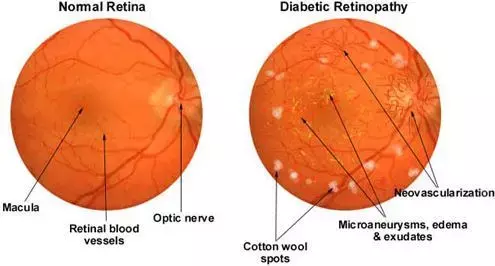- Home
- Medical news & Guidelines
- Anesthesiology
- Cardiology and CTVS
- Critical Care
- Dentistry
- Dermatology
- Diabetes and Endocrinology
- ENT
- Gastroenterology
- Medicine
- Nephrology
- Neurology
- Obstretics-Gynaecology
- Oncology
- Ophthalmology
- Orthopaedics
- Pediatrics-Neonatology
- Psychiatry
- Pulmonology
- Radiology
- Surgery
- Urology
- Laboratory Medicine
- Diet
- Nursing
- Paramedical
- Physiotherapy
- Health news
- Fact Check
- Bone Health Fact Check
- Brain Health Fact Check
- Cancer Related Fact Check
- Child Care Fact Check
- Dental and oral health fact check
- Diabetes and metabolic health fact check
- Diet and Nutrition Fact Check
- Eye and ENT Care Fact Check
- Fitness fact check
- Gut health fact check
- Heart health fact check
- Kidney health fact check
- Medical education fact check
- Men's health fact check
- Respiratory fact check
- Skin and hair care fact check
- Vaccine and Immunization fact check
- Women's health fact check
- AYUSH
- State News
- Andaman and Nicobar Islands
- Andhra Pradesh
- Arunachal Pradesh
- Assam
- Bihar
- Chandigarh
- Chattisgarh
- Dadra and Nagar Haveli
- Daman and Diu
- Delhi
- Goa
- Gujarat
- Haryana
- Himachal Pradesh
- Jammu & Kashmir
- Jharkhand
- Karnataka
- Kerala
- Ladakh
- Lakshadweep
- Madhya Pradesh
- Maharashtra
- Manipur
- Meghalaya
- Mizoram
- Nagaland
- Odisha
- Puducherry
- Punjab
- Rajasthan
- Sikkim
- Tamil Nadu
- Telangana
- Tripura
- Uttar Pradesh
- Uttrakhand
- West Bengal
- Medical Education
- Industry
Vitamin A Deficiency & the Risk of Diabetic Retinopathy, Unravelling the Link!

Vitamin A deficiency has been observed to be associated with diabetic retinopathy. However, only a limited number of studies have explored this link in individuals with type 2 diabetes.
The purpose of this study was to examine the relationship between serum vitamin A levels and diabetic retinopathy in patients diagnosed with type 2 diabetes. Between the years 2019 and 2024, data were retrospectively collected from a total of 470 healthy individuals and 1,020 individuals with type 2 diabetes. Among those with diabetes, 500 had no signs of diabetic retinopathy, while 520 were diagnosed with the condition.
Participants were required to be over the age of 30 and to have undergone retinal examinations to determine the severity of diabetic retinopathy, as well as blood tests to measure serum vitamin A levels. Findings revealed that a substantial portion of participants had low levels of vitamin A in their blood.
Individuals with diabetic retinopathy had significantly lower vitamin A levels compared to healthy participants. After accounting for various influencing factors, the study found that individuals with diabetic retinopathy were more likely to have vitamin A deficiency. Furthermore, the likelihood of vitamin A deficiency increased in relation to the severity of diabetic retinopathy. When the participants were further divided according to the severity of their diabetic retinopathy, it became evident that lower levels of vitamin A were associated with more advanced stages of the disease.
This relationship appeared to be influenced by whether the individuals smoked or had a history of high blood pressure. Additionally, over a two-year period of follow-up, individuals with lower vitamin A levels were more likely to develop diabetic retinopathy, suggesting a progressive link between declining vitamin A status and disease progression. This study indicates that reduced levels of vitamin A in the blood are associated with both the presence and severity of diabetic retinopathy in people with type 2 diabetes. A deficiency in vitamin A may therefore serve as a potential biological risk factor for the development and worsening of diabetic retinopathy.
Reference:
Zhang MJ, Cheng F. Association Between Low Serum Vitamin A Level and Diabetic Retinopathy in Patients with Type 2 Diabetes: A Hospital-Based Study. J Inflamm Res. 2025;18:7097-7104.https://doi.org/10.2147/JIR.S514127
Dr. Shravani Dali has completed her BDS from Pravara institute of medical sciences, loni. Following which she extensively worked in the healthcare sector for 2+ years. She has been actively involved in writing blogs in field of health and wellness. Currently she is pursuing her Masters of public health-health administration from Tata institute of social sciences. She can be contacted at editorial@medicaldialogues.in.
Dr Kamal Kant Kohli-MBBS, DTCD- a chest specialist with more than 30 years of practice and a flair for writing clinical articles, Dr Kamal Kant Kohli joined Medical Dialogues as a Chief Editor of Medical News. Besides writing articles, as an editor, he proofreads and verifies all the medical content published on Medical Dialogues including those coming from journals, studies,medical conferences,guidelines etc. Email: drkohli@medicaldialogues.in. Contact no. 011-43720751


